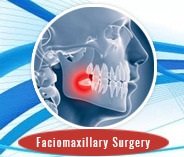Sleep dentistry, or sedation dentistry, is a dental solution designed for patients who dread going to the dentist. Many people feel afraid or uncomfortable when they are placed in vulnerable positions like the dental chair, and may experience dental anxiety as a result. Sleep dentistry is an option for patients who fear dental procedures, fear needles, have difficulty with their gag reflex, have very sensitive teeth, or have difficulty becoming numb from oral injections.
Sleep dentistry offers painless dentistry and anxiety-free dental procedures as patients are in a deeply relaxed state, though fully responsive. Sleep dentistry also provides an opportunity to perform multiple or lengthy dental procedures in one session, minimizing the number of visits a patient has to make and ultimately reducing the build up of anxiety prior to each dental visit.
Types of Sedatives
Sedative drugs that are commonly administered during sleep dentistry include:
- Anxiolytics
- Depressants
- Sleeping pills
- Tranquilizers
Common types of Sedation
- Though in extreme cases, or for more complicated procedures, unconscious sedation through general anaesthesia may be required, generally sleep dentistry involves conscious sedation. Patients will take prescribed medication by a sedation dentist, about an hour before their scheduled visit and will require someone to drive them to the appointment. The sedative medication usually lasts about six hours, enabling multiple procedures to be completed in one session, if necessary. During the procedure, patients aren’t unconscious, but mentally “detached” from what’s going on, and before they know it, the dental procedure is over and they can go home. The sedative effects of the medication last up to 24 hours, so patients will likely need to relax for the rest of the day after their dental procedure(s).
- Other common types of conscious sedation are inhalation, intravenous, and intramuscular sedation. Inhalation sedation, or nitrous oxide-oxygen, is the most common sedation technique and is also known as laughing gas. Inhalation sedation is a preferable option as patients recover quickly and may leave the dental office alone and immediately resume their normal daily activities. Intravenous conscious sedation is a safe sedation technique and though it is not as readily available as other forms of sedation, it is more effective than oral sedation. Patients will not remember any of the procedure and will feel as though they were asleep, even though they were wide-awake throughout. When intravenous sedation is used, patients will need to be hooked up to monitoring devices to measure blood pressure, breathing, and heart rate. Patients must have someone escort them when leaving the office after the procedure. Intramuscular sedation involves injecting sedative drugs into the muscle of the upper arm or thigh and is a less common option, typically used in paediatric dentistry.
- General anaesthesia is required only in extreme cases and requires a trained and certified professional to monitor the patient while the dentist performs the dental procedure(s). In order to perform dental procedures under general anaesthetic, dentists must receive at least 2 years of advanced specialized training and are certified by a dental board.
Anxious or phobic patients find that sleep dentistry offers a perfect solution for maintaining good dental health while being in a totally relaxed state. Dental sedation ensures that patients experience no pain or anxiety during their dental procedures, and prevents emergencies that could occur as a result of such anxiety, like fainting.
Sedation Dentistry in India
Cosmozone is one of the few dental clinics in India offering sedation dentistry to nervous dental patents or patients with dental phobia. It provides complete family dental care and will probably take the word “fear” out of your vocabulary. Sedation Dentistry in India will make your visit a pleasant one. It has often been observed that the patients who decide to use sedation dentistry gag with foreign objects in their mouth, fear dental pain or have sensitive teeth. There are others who would prefer to skip a visit to the dentist because they are afraid for one reason or another, including the dental pain. During your visit to Cosmozone, you can expect a pain free dental experience.
Uses of Sedation Dentistry in India
Sedation Dentistry in India provides many remedial options from fear of dental pain. Since it adds to the dental treatment costs, many tend to avoid and at the same time unable to withstand pain. However, a sedation dentist often recommends this treatment for those who have low pain tolerances as well as those who cannot loosen up during their dental visit. Sedation Dentistry is also commonly known as Relaxation Dentistry. Those who require a great deal of dental treatment like tooth abscess, root canals, scaling & root planning, gum surgery, cosmetic dentistry procedures like tooth preparation for veneers, crowns & bridges, inlay/onlay, or dental implants surgery, should consider the use of Sedation Dentistry for dental pain and sensitive teeth.
Cost of Sedation Dentistry in India
Dental patients on dental holiday travel to India find Indian dental clinics providing very low cost sedation dentistry. You will find during your India dental tour that typically the cost for I.V. Sedation Dentistry is comparatively higher than it is for the use of Nitrous Oxide. Cosmozone though provides safe I.V sedation at comparable costs to hospital based sedation as Dr Pavan M Patil is a trained and certified user of sedatives. This makes it possible for you to have I.V sedation at the clinic itself and avoid the extra cost of hospital based sedation or an anaesthetist.















